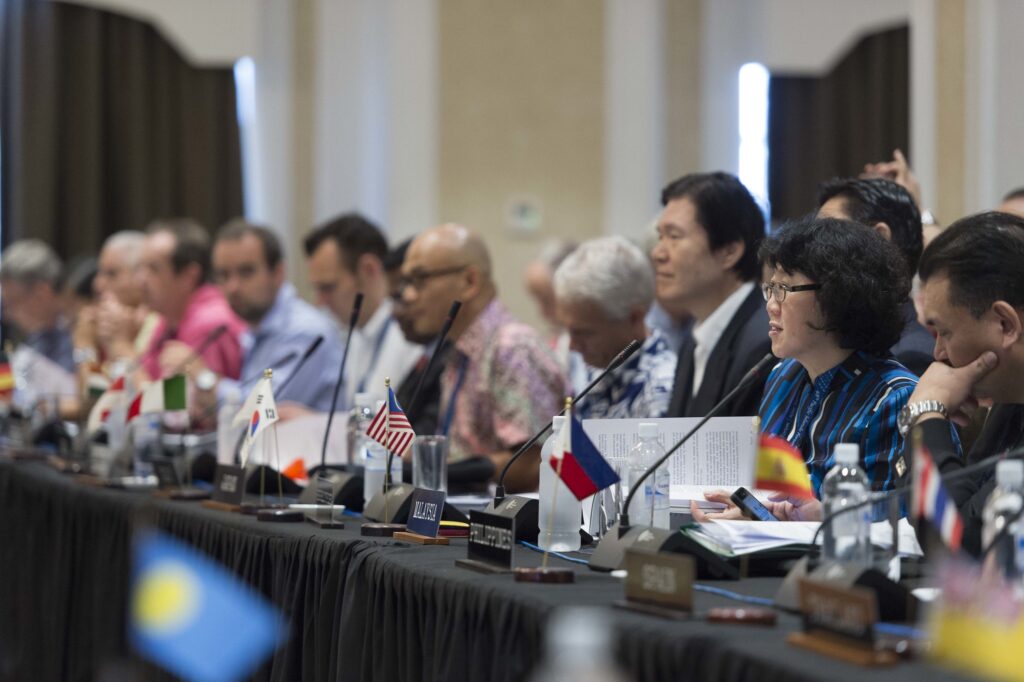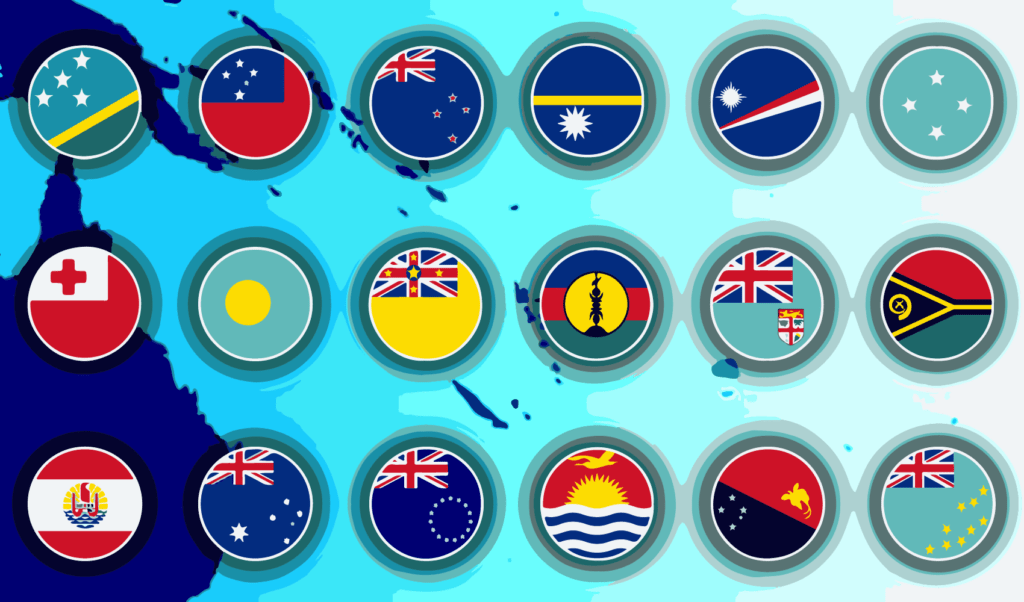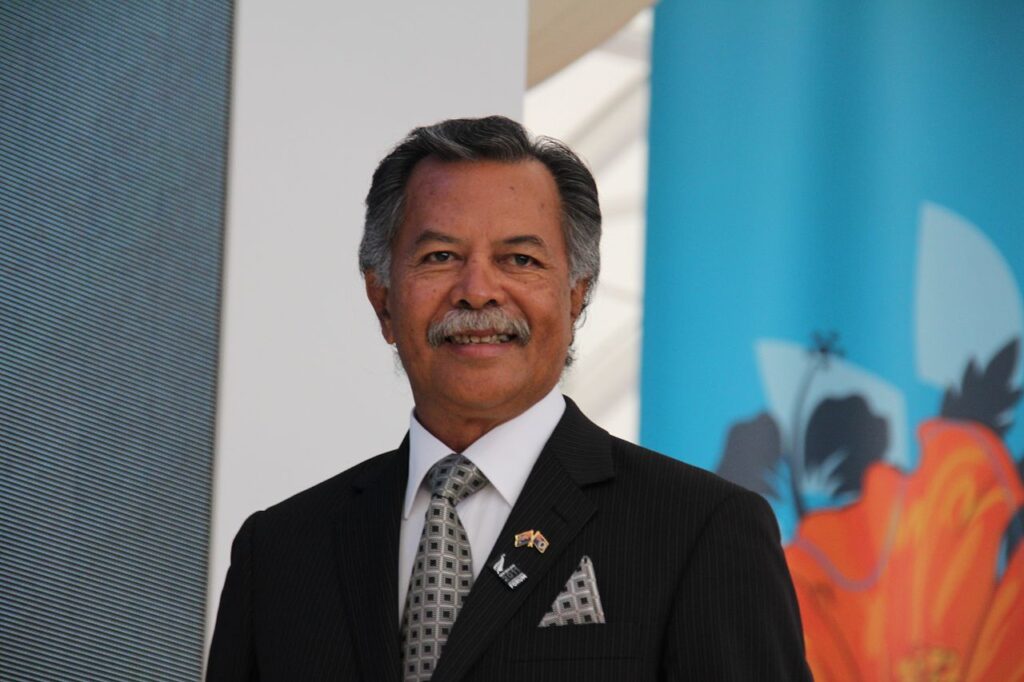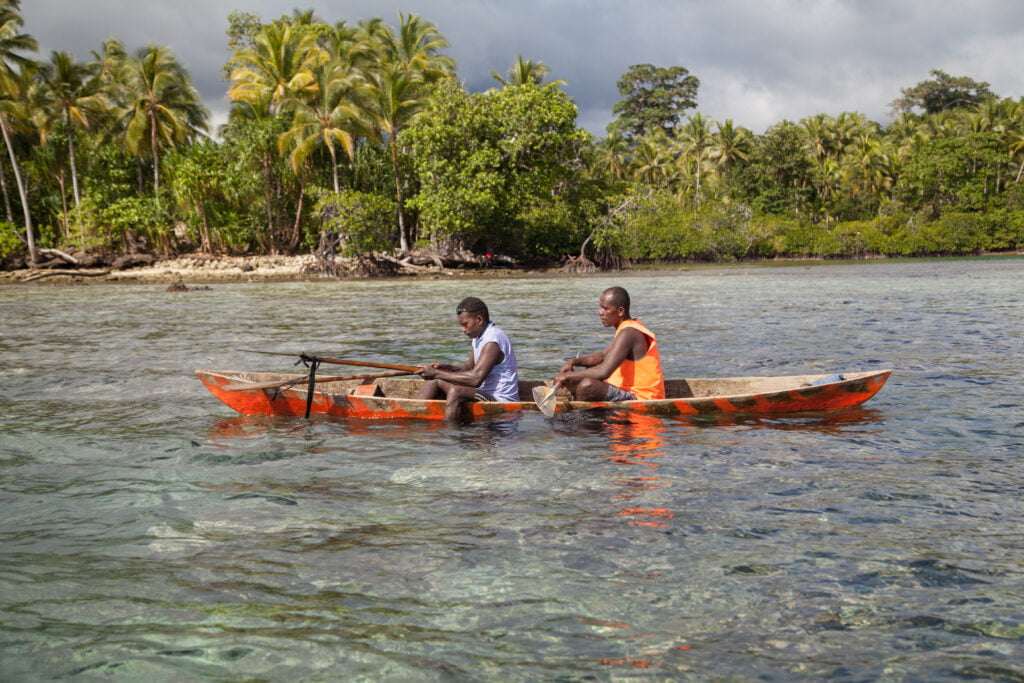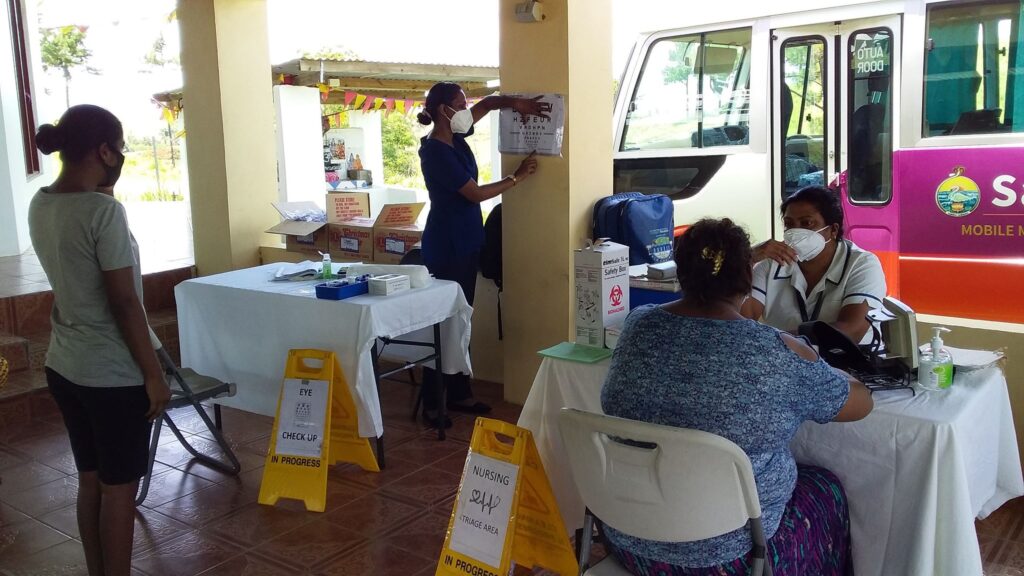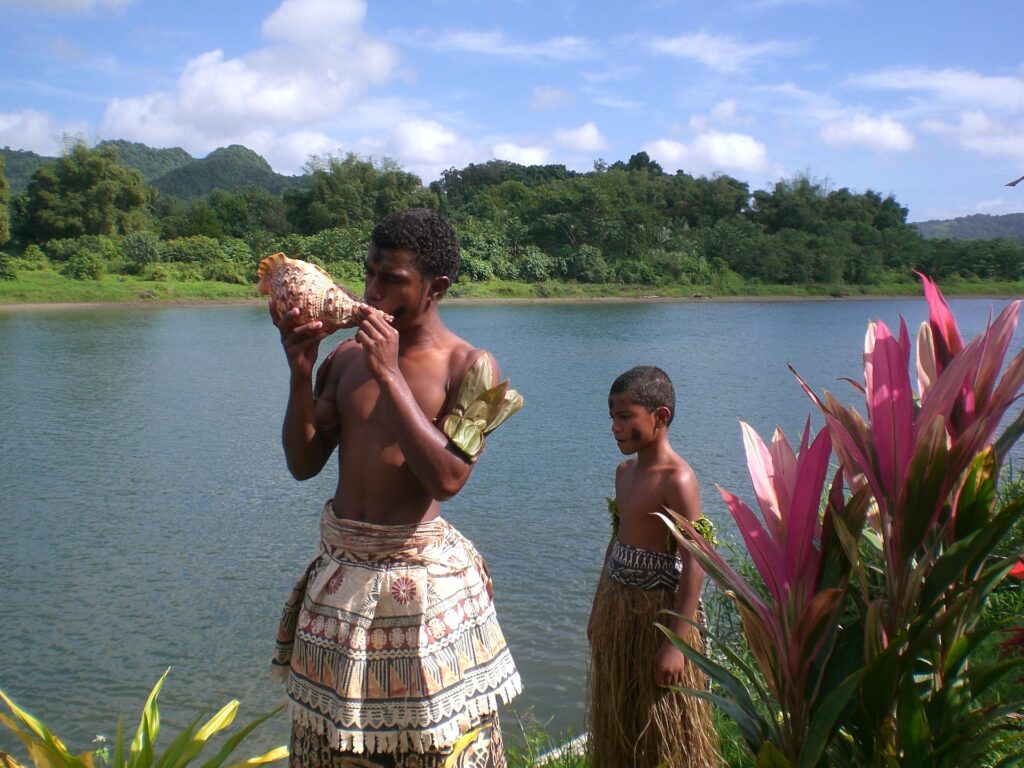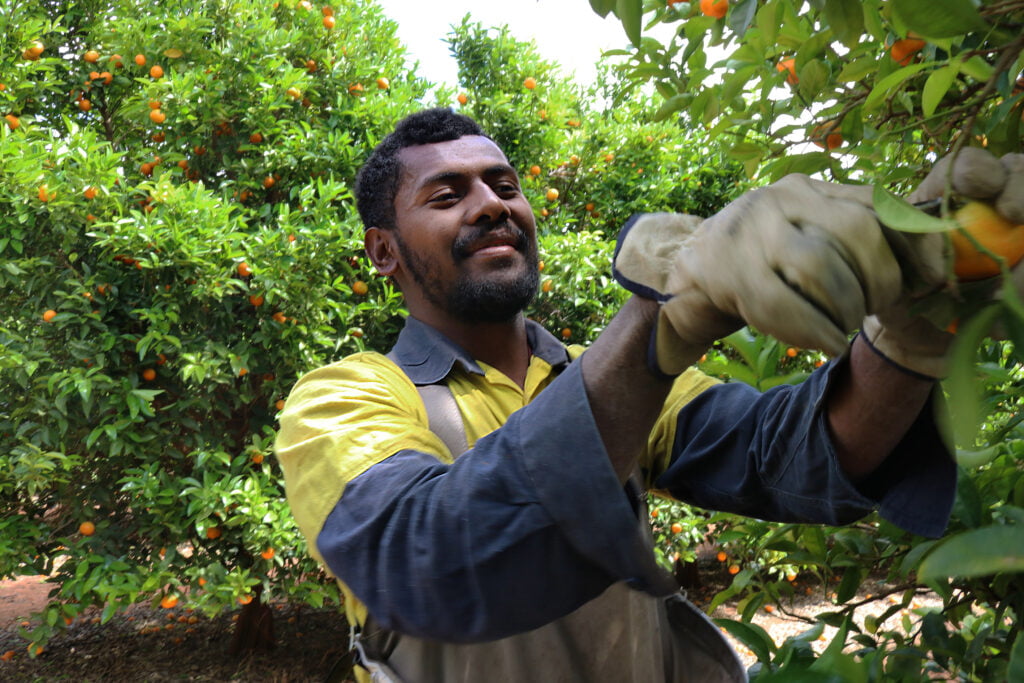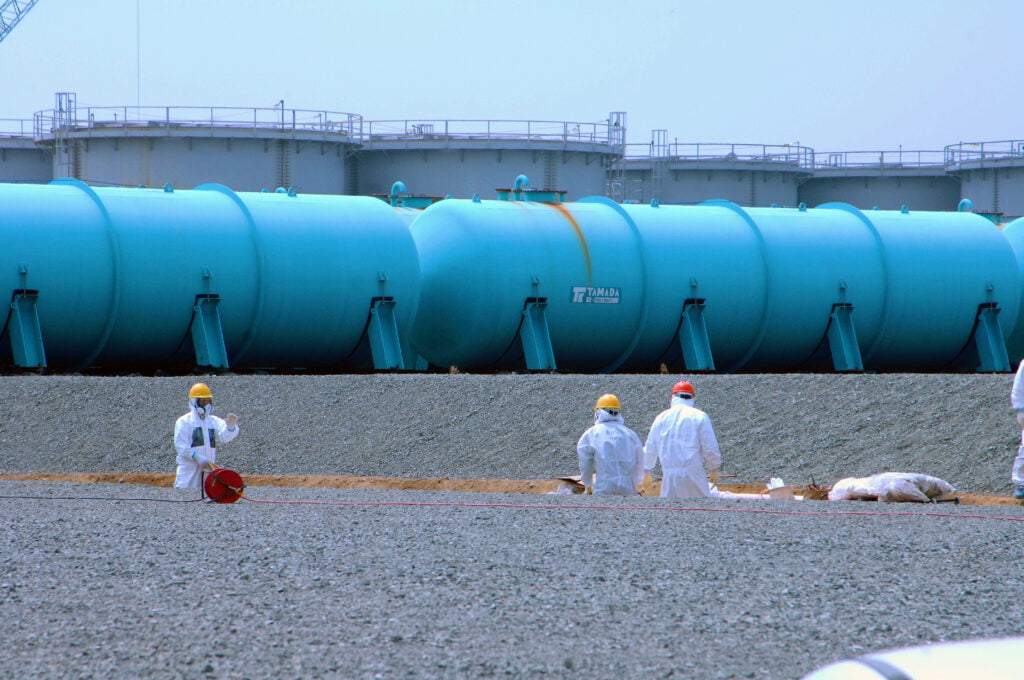After major setbacks to the UN Sustainable Development Goals, the Pacific needs fairer access to financing as it fights to overcome climate challenges
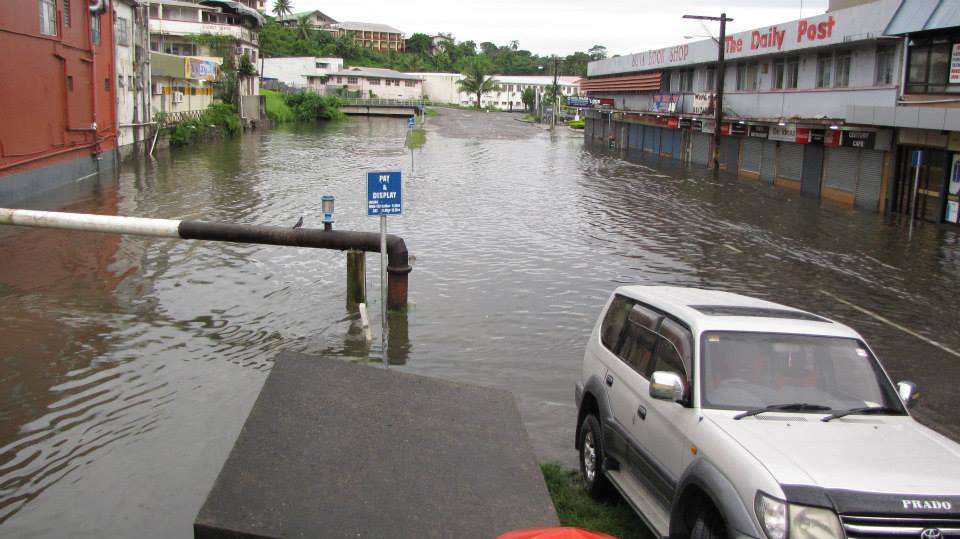 Pacific island countries such as Fiji are vulnerable to extreme weather events. : Stemoc, Wikimedia Commons CC BY 4.0
Pacific island countries such as Fiji are vulnerable to extreme weather events. : Stemoc, Wikimedia Commons CC BY 4.0
After major setbacks to the UN Sustainable Development Goals, the Pacific needs fairer access to financing as it fights to overcome climate challenges
Crises in climate, geopolitics and global health have caused major setbacks for the Sustainable Development Goals, a set of 17 global benchmarks adopted by all UN member states in 2015 in pursuit of a more equitable world.
Small Island Developing States, which include 13 island countries and seven territories in the Pacific, have suffered the direct health consequences of the COVID-19 pandemic as well as its indirect consequences, such as a contracting global economy and supply-chain disruptions. Meanwhile, energy prices are increasing, geopolitical tensions are on the rise, and the climate crisis continues to hit island nations hard.
Rich countries and International Financial Institutions need to help finance the physical infrastructure and human capital required to make progress on the Sustainable Development Goals in Small Island Developing States and strengthen the resilience of these economies.
Small Island Developing States are a distinct group of 58 small, remote, undiversified and highly open countries located in the Caribbean Sea, the Pacific, Atlantic and Indian Oceans, and the South China Sea. In August 2020, in a letter to the Alliance of Small Island Developing States, the UN Secretary-General committed the UN to producing a Multidimensional Vulnerability Index for Small Island Developing States to better define the special case for development these small nations represent, and expand their access to resources such as concessional financing. In December 2020, the UN General Assembly adopted a resolution mandating the UN undertake technical work to develop an index and propose options for its use. Due to compounded vulnerabilities, Small Island Developing States have lower long-term development potentials.
A higher degree of structural vulnerability, as measured by the UN Sustainable Development Solutions Network’s pilot Multidimensional Vulnerability Index, is found to be associated with a lower SDG Index score, a tool developed by the Network to measure countries’ progress in achieving the Sustainable Development Goals. Being structurally vulnerable is associated with lower performance on Goal 1 (no poverty) and Goal 3 (good health and well-being), and on issues such as food insecurity. The limited fiscal capacity of Small Island Developing States cannot absorb the growing costs of climate mitigation and adaptation, without which, the atoll countries of the Pacific such as Kiribati, Marshall Islands, Tokelau and Tuvalu would have an uncertain future.
Pacific Islands are particularly vulnerable to economic and financial external shocks, as well as to the impact of climate change and natural hazards. When COVID-19 struck, Small Island Developing States heavily dependent on the tourism sector and remittance flows suffered severe economic recessions and job losses. Fiji, Guam and Vanuatu saw a drop in annual GDP in 2020 of 15.7 percent, 11.9 percent and 6.8 percent respectively, compared with 6 percent in the European Union and 3.4 percent in the United States.
Climate change and natural disasters also pose increasingly severe risks to small island economies, as shown by the recent volcanic eruption, tsunami and ashfall in Tonga, and by shrinking the land areas of several Pacific islands due to rising sea levels. Small island economies are also more often affected by a severe ‘triple burden’ of malnutrition, where undernutrition and micronutrient deficiencies coexist with growing rates of obesity and related noncommunicable diseases.
Pacific Islands import 80 percent of their food and have the world’s highest prevalence of obesity and noncommunicable diseases. The Sustainable Development Goals include a bedrock principle to “leave no one behind”. Small Island Developing States need the financing to invest in the physical infrastructure (such as renewable energy and digital technologies) and human capital (such as health and education) they need to make progress on the goals.
Yet most of them cannot borrow on reasonable terms. The International Monetary Fund has issued an important study measuring the extra costs facing Small Developing States, including 23 Small Island Developing States, in meeting the Sustainable Development Goals. The Fund’s conclusion is that none of the Small Developing States can fund the goals on their own – they need extra financing from the rest of the world. In order to channel more international financing to Small Island Developing States, including Pacific Islands, rich countries – especially the G7 countries (Canada, France, Germany, Italy, Japan, the United Kingdom and the United States) – could step up their commitments to finance climate mitigation and adaptation globally. Rich countries and their fossil-fuel companies have pumped out the lion’s share of carbon-dioxide emissions, the main cause of climate change.
Yet these rich countries fell short on their commitment to mobilise US$100 billion per year for climate finance. These countries could also tax the fossil-fuel industry to help cover the rising global costs associated with their emissions. International financial institutions could better integrate vulnerability and countries’ needs in their criteria for allocating concessional finance and funding. Small Island Developing States struggle to mobilise the financing needed to achieve the goals mainly because gross national income per capita is still used to determine access to concessional or grant resources. Small island economies, most of which are high-income and middle-income countries, are considered too rich to have access to development financing, although they are suffering repeated devastating environmental disasters, and several simultaneous shocks are paralysing their economies, endangering their populations.
International financial institutions could revise eligibility criteria for access to development cooperation, considering countries’ specific needs in addition to gross national income per capita. To allow assistance to be delivered to Small Island Developing States, it is essential that structural vulnerabilities are recognised while allocating concessional funds. The development of the Multidimensional Vulnerability Index requested by the UN Secretary-General, as well as the establishment of a high-level expert panel that will be tasked with finalising the index by 2022, represent key steps towards this end.
Innovative financing solutions, such as Sustainable Development Goal bonds, could also play an important role in supporting goal-related investments in Small Island Developing States. That said, according to the existing rating systems, most such states do not have creditworthiness and so cannot have access to these financial instruments unless support is provided by International Financial Institutions to de-risk bonds and raise debt in capital markets. The International Monetary Fund’s Special Drawing Rights, an international reserve asset created to supplement the official reserves of its member countries, could be used to leverage additional funding to support development.
Debt swaps such as debt-to-development, debt-to-climate or debt-to-environment are state-contingent tools that could be used by Small Island Developing States to restructure their growing debt and free up resources for development and Sustainable Development Goal progress.
World leaders will have several opportunities to take action to support progress on the Sustainable Development Goals in vulnerable countries, including at the High-Level Political Forum in early July, COP Climate 27 in November, COP Biodiversity 15 in December and the SDG Summit in September 2023. A global plan to finance sustainable development in Small Island Developing States and vulnerable countries could turn the tide.
Isabella Massa is senior economist at the Paris Office of the UN Sustainable Development Solutions Network (SDSN), where she leads the work on Small Island Developing States (SIDS). Previously, she worked as Research Fellow at the Overseas Development Institute (ODI) in London (UK), and as an independent consultant for several international organisations.
Guillaume Lafortune is vice president and head of the Paris office at the UN Sustainable Development Solutions Network (SDSN). He joined SDSN in 2017 to lead work on SDG data, policies and financing. Previously, he served as an economist at the Organisation for Economic Co-operation and Development (OECD) and Government of Québec (Canada).
Simona Marinescu, PhD is a member of Scotia Group, a group of prominent internationalists and leaders in politics, academia, law and business whose goal is to lay the foundations for concerted global action to avert the worst consequences of the climate crisis. She co-authored in 2022 the Energy, Law and Ethics Research Book with the Queen Mary University of London focusing on environmental, social and governance standards to decarbonize development financing. She is a guest lecturer at the National University of Samoa and UN Resident Coordinator in Samoa, Cook Islands, Niue and Tokelau.
A list of SDSN donors and partners can be found here.
Originally published under Creative Commons by 360info™.


